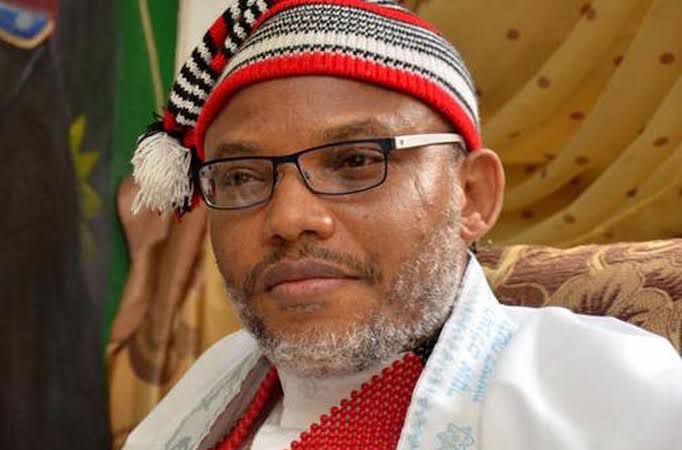Nigeria – Nnamdi Kanu’s Case Is First Acid Test For CJN Kekere-Ekun, Says Elder Statesman Obidigbo

By Onoja Baba, Nigeria
Elder statesman Dr. Chike Obidigbo has declared that the handling of Mazi Nnamdi Kanu’s prolonged detention will serve as a key indicator of the Chief Justice of Nigeria (CJN), Justice Kudirat Kekere-Ekun’s, dedication to upholding justice and the rule of law.
Obidigbo, the President of the Osisioma Foundation, raised concerns over Kanu’s continued imprisonment, calling it a troubling sign for Nigeria’s democracy.
Speaking to journalists, Obidigbo criticized the Nigerian government’s treatment of Kanu, the leader of the Indigenous People of Biafra (IPOB), labelling him a “prisoner of conscience.”
He highlighted Kanu’s forced rendition from Kenya, suggesting it was politically motivated rather than a legitimate pursuit of justice.
“Kanu’s detention tarnishes Nigeria’s image on the global stage, and it reflects poorly on our commitment to human rights and democracy,” Obidigbo remarked.
He argued that as Nigerians mark the country’s 64th independence anniversary, releasing Kanu would symbolize a much-needed national reconciliation.
He also pointed out that President Bola Ahmed Tinubu missed a crucial opportunity to address the issue in his recent Independence Day speech, where the nation expected a gesture of unity and healing after a tense election season.
“Presidents usually use national addresses to tackle pressing concerns, and when President Tinubu touched on security and military achievements, many thought he would acknowledge Kanu’s detention as part of efforts to reduce political tension,” Obidigbo said.
He further argued that the silence from the presidency only strengthens the view that Kanu’s detention is a political tactic used by the ruling All Progressives Congress (APC).
Obidigbo noted that former President Muhammadu Buhari played a significant role in Kanu’s rendition from Kenya, claiming it was under the pretense of legal proceedings.
However, he suggested that the trial was merely a façade for underlying political motives, particularly Buhari’s strained relationship with the Igbo people.
“The trial has become a tool for political manipulation, as evidenced by the Supreme Court’s ruling being ignored and the case being sent back to a lower court. This kind of judicial gymnastics is unheard of in a true democracy,” Obidigbo added, emphasizing that the delays in Kanu’s release were unjustified.
Obidigbo also defended Kanu’s call for a referendum on Nigeria’s unity, questioning whether the country’s union was ever truly voluntary or merely imposed by colonial powers without input from the indigenous populations.
He warned that Kanu’s continued detention could spark further unrest in the Southeast, a region already grappling with social and political tensions.
Despite the challenges, Obidigbo expressed optimism that the newly appointed CJN, Justice Kudirat Kekere-Ekun, would resist political pressure and ensure that the judiciary remains independent. He believes that the outcome of Kanu’s case will serve as a critical test for her leadership.
“Kanu’s case is the first acid test for the new CJN. The way it is handled will reveal whether political games will continue to influence the judiciary or whether justice will prevail,” Obidigbo concluded. He remains hopeful that Justice Kekere-Ekun’s tenure will restore confidence in the legal system and bring an end to what he sees as Kanu’s unjust imprisonment.
categories
recent posts





